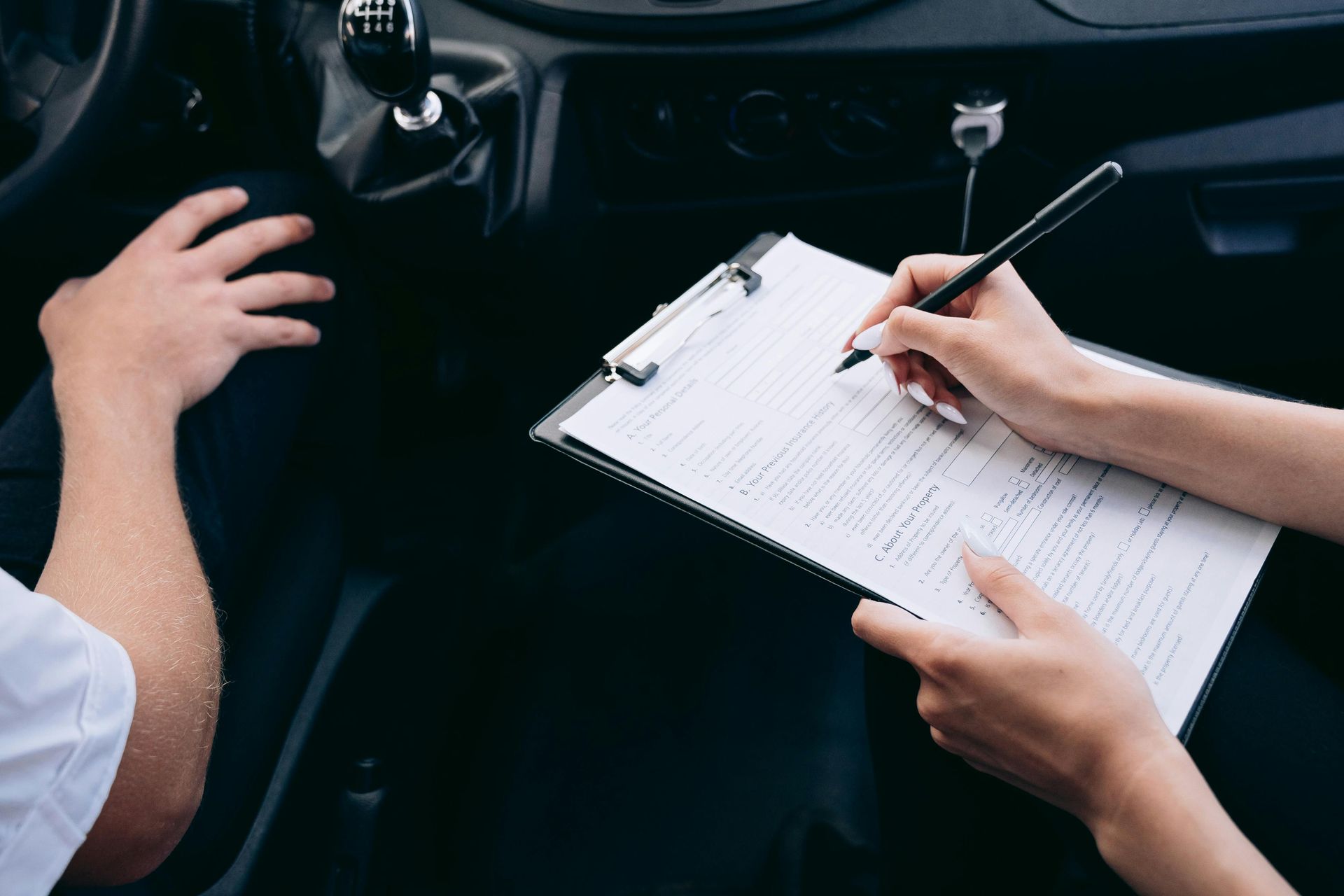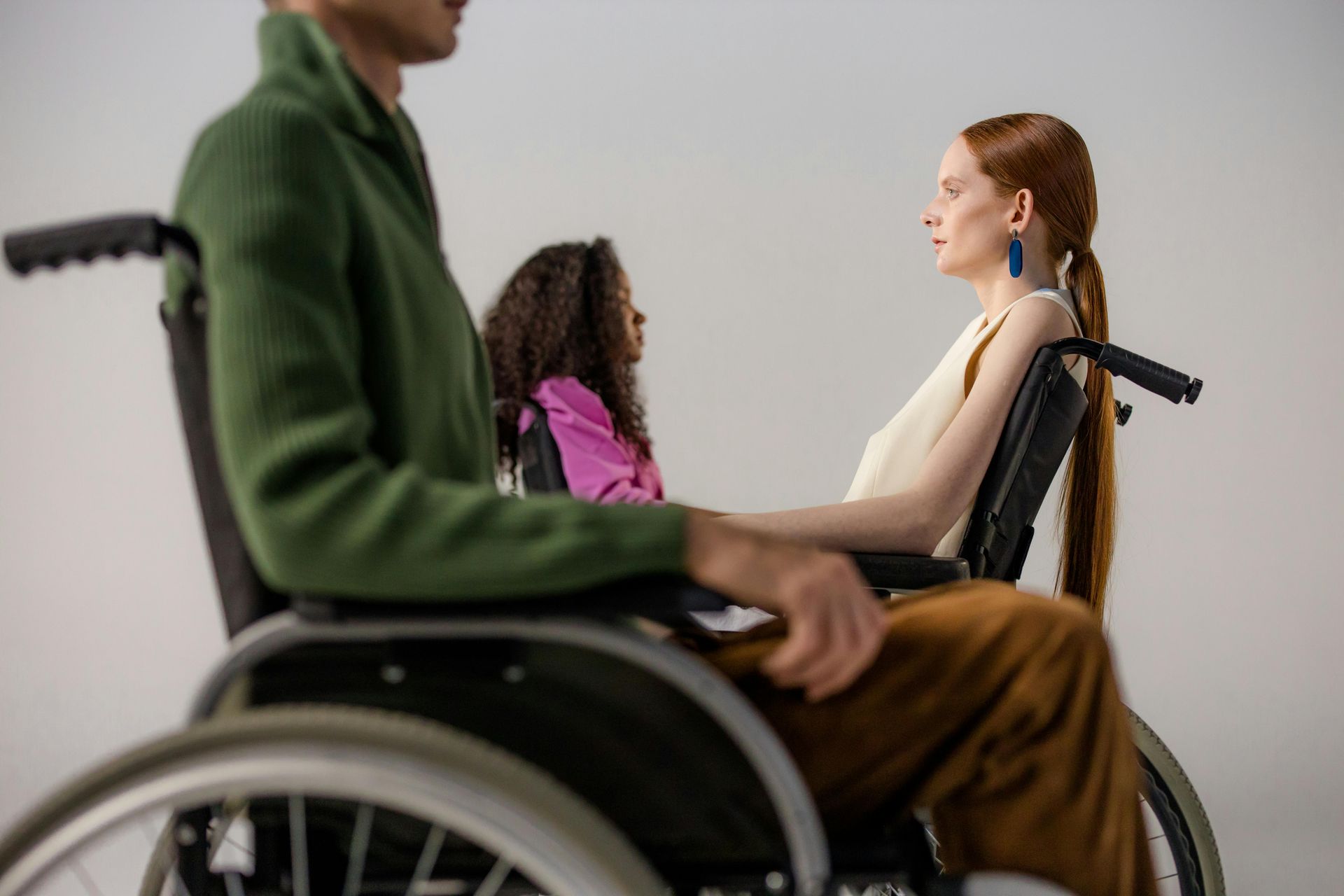Dealing with Insurance Adjusters After a Car Accident in Toronto: Your Essential Guide

A car accident in the Greater Toronto Area (GTA) is a stressful and overwhelming experience. You’re dealing with property damage, potential injuries, and the sudden disruption to your life. Amidst this chaos, one of the first and most critical interactions you'll have is with an insurance adjuster.
For many, the insurance claims process in Ontario's "no-fault" system is confusing. While your own insurance company (regardless of who was at fault) handles your mandatory Accident Benefits (SABS) claim, the adjuster’s primary goal is to close the claim quickly and for the least amount possible. This reality makes it crucial for you to approach every interaction with caution, diligence, and a clear understanding of your rights.
This is where expert legal guidance becomes invaluable.
Understanding the Adjuster's Role
When you report a car accident to your insurer, an adjuster is assigned to your case. Their function is twofold: to investigate the accident and to evaluate your claim for benefits and compensation. This evaluation is not necessarily an impartial assessment aimed at maximizing your payout. Instead, the adjuster is an employee of the insurance company—a for-profit entity—meaning their loyalty lies with their employer's financial interests.
Understanding this dynamic is the first step toward effectively protecting your claim. Any information you provide, or any document you sign, can potentially be used to minimize the value of your case later on. This is true whether you are dealing with your own insurer for Accident Benefits or the at-fault driver's insurer for a Tort claim (a lawsuit for pain and suffering, loss of income, and future care costs).
Key Steps to Take Immediately After an Accident
The minutes, hours, and days following an accident are critical. Your actions during this time lay the foundational evidence for your claim.
Secure Documentation and Seek Medical Attention
- Prioritize Your Health: Your well-being is paramount. Seek immediate medical attention, even if your injuries seem minor. Some serious injuries, like whiplash or concussions, may not present symptoms for days or even weeks. Prompt medical records create an essential link between the accident and your injuries, which an adjuster might otherwise challenge by suggesting delayed treatment means the injury isn't serious.
- Document the Scene: At the accident site (if safe to do so), take copious photographs of the damage, the position of the vehicles, and any relevant road conditions or signage. Collect the names, phone numbers, and license plate information of all drivers and witnesses.
- Report to Your Insurer Promptly: In Ontario, you must notify your insurer of your intention to apply for Accident Benefits within seven days and submit the completed OCF-1 Application for Accident Benefits within 30 days of receiving the forms from your insurer. Failing to adhere to these deadlines can jeopardize your claim.
Navigating Communications with the Adjuster
Once the claim is filed, the adjuster will be in contact. How you manage these interactions is vital to securing fair compensation.
Do Not Provide a Recorded Statement
A common tactic used by adjusters is to request a recorded or written statement, often under the guise of "standard procedure" or "clarifying details."
- Be Cautious: Politely decline to provide a recorded statement without legal counsel. Remember that adjusters are highly trained to ask specific questions designed to elicit details that might undermine your claim. An innocent answer about how you are feeling or what you were doing at the moment of impact could be misinterpreted or used against you to suggest partial fault or a less severe injury.
- Stick to Facts: If you must speak with the adjuster, provide only the basic facts: your name, contact information, the date and location of the accident, and the basic type of accident. Refer all questions about your injuries or prognosis to your doctor or, better yet, to your personal injury lawyer.
Never Sign Documents Without Legal Review
Adjusters may send various forms, including medical authorizations (OCF-5) or blanket releases.
- Review All Documents: Never sign a document without fully understanding its purpose and implications. For example, a broad medical authorization might allow the insurer to delve into your entire medical history, searching for a pre-existing condition to argue your current injuries are not solely a result of the car accident.
- Settlement Offers: Adjusters sometimes offer a quick, low settlement, especially if you have not retained a lawyer. They hope you'll accept this small sum out of desperation or to avoid a lengthy process, before the full extent of your long-term injuries is known. Do not accept a first offer. Once you sign a full and final release, you give up all rights to seek further compensation, even if your condition worsens dramatically.
The Power of Legal Representation
Dealing with the intricacies of Accident Benefits, the “threshold” test for Tort claims (the right to sue the at-fault driver), and the complex negotiations with insurance companies is a full-time job. You should be focused on your recovery.
Protect Your Rights and Maximize Your Claim
A personal injury lawyer acts as your shield and advocate.
- Handling the Adjuster: Your lawyer takes over all communication with the insurance adjusters, preventing you from making inadvertent mistakes that could weaken your case. They understand the legal deadlines, the types of benefits available, and the best way to present evidence of your injuries and losses.
- Fighting Lowball Offers: A lawyer has the experience to accurately value your claim—including current and future medical needs, lost wages, and compensation for pain and suffering—and the leverage to negotiate a fair settlement. If a fair settlement cannot be reached, they are prepared to fight for your rights through mediation, arbitration (at the Licence Appeal Tribunal for Accident Benefits disputes), or the court system.
Don't Go It Alone
After a car accident in Toronto, the process of dealing with insurance adjusters can feel like an uneven battle. The adjuster's experience and corporate mandate often place the unrepresented victim at a severe disadvantage.
Protecting your legal and financial future means being informed, cautious, and proactive. The best defense is to hire a legal team that can level the playing field.
Benjamin Law Firm has some of Greater Toronto Area's Top Personal Injury, Car Accident, Long-Term Disability and Employment Lawyers. Over 3,500 Families Helped. Over $60 Million In Settlements Recovered For Clients.
If you or a loved one has been injured in a car accident, don't face the insurance giants alone. Contact Benjamin Law for a confidential, risk-free consultation to ensure you receive the full and fair compensation you deserve.
Greater Toronto Area's Trusted Personal Injury Law Firm



BOOK YOUR FREE CONSULTATION
Fill out the Case Evaluator form below to discuss your case or claim with one of our experienced Family-First legal professionals. At Benjamin Law, we work hard, and fast to get you justice, to solve your problems, and get you the compensation that you deserve.
